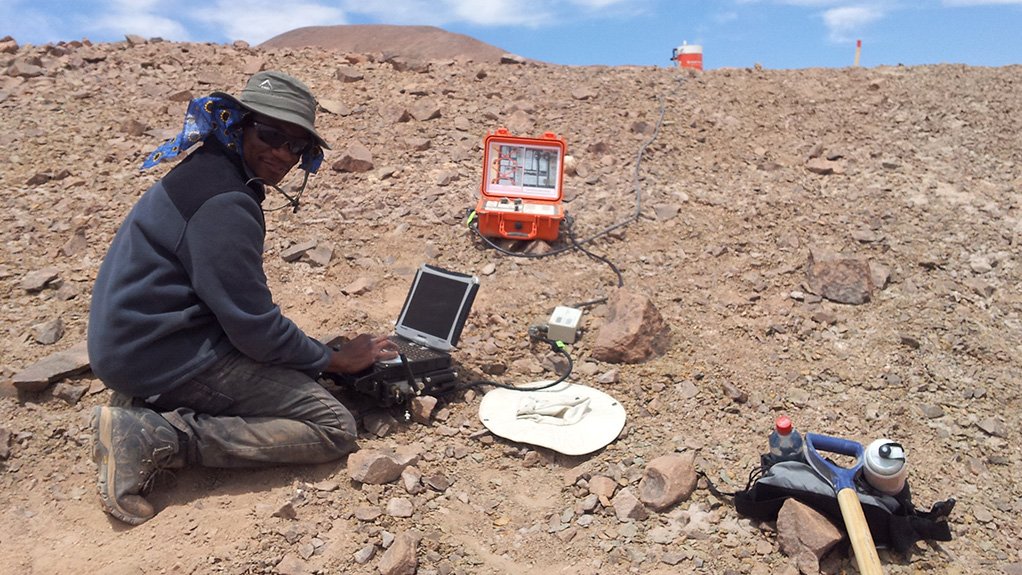JOHANNESBURG (miningweekly.com) – If South Africa is not to be left out of the exploration boom, spurred by the immense mineral resources required to develop technologies needed to achieve net zero, it is imperative that the recommendations of South Africa’s Exploration Implementation Plan be implemented in full as a matter of urgency.
An inclusive approach, harnessing the collaboration of different key stakeholders, is critical to attracting exploration expenditure to South Africa.
Pivotal to achieving this outcome, is an efficient, well-resourced, and extensively skilled Department of Mineral Resources and Energy (DMRE) to drive the process.
This view is expanded comprehensively by Integrated Geoscience Solutions technical director Dr David Khoza in an opinion article to Mining Weekly in which he expresses concern that, to date, nothing concrete has been reported on the implementation or adoption of many important considerations, not the least being the implementation of incentive schemes such as flow-through share (FTS) schemes that have stimulated exploration in other mining jurisdictions.
In the article, Khoza recalls that on 14 April 2022, the DMRE gazetted South Africa’s Exploration Implementation Plan, which was developed following the Fraser Institute’s annual survey drawing attention to South Africa’s decline as an exploration and mining jurisdiction.
He adds that essentially, the Exploration Implementation Plan offers a blueprint on how to revive mineral exploration in the country by concentrating on the major obstacles that are fundamental barriers to exploration. These barriers include the policy/regulatory framework and its processes and systems, the absence of financial instruments and the lack of investment in exploration/mining-related research and development.
Nearly 18 months have lapsed since the publication of the plan and it is therefore apt to ask whether any progress has been made in the implementation of the proposed interventions.
Can we be sure that South Africa is on course to claim the stated aspiration of 5% of the global exploration budget – as opposed to the pitiful 0.7% it is currently achieving, Khoza asks.
A scoring matrix for the proposed interventions was developed and is being constantly updated. In total, 31 interventions were proposed. To date, 15% of these have been completed, 6% have been partially completed while, for a mammoth 81%, no measurable progress has been made.
In this regard, the Council for Geoscience (CGS) should be commended for its diligence in implementing the measures stated in the plan that fall within its ambit/mandate.
For example, the CGS has published a digital data portal containing geoscientific data, maps and reports, making these resources available to the public at no cost.
This initiative marks a significant step towards providing vital pre-competitive data to the exploration sector, Khoza states.
In addition, the Geoscience Act Regulations were gazetted, bringing much-needed clarity and guidance in regard to the lodging of geoscience data by the public and private sectors.
This will significantly help to prevent duplication in the gathering of geoscience data while, at the same time, making pre-competitive data more easily accessible.
In a key development, the CGS appears to have secured significant State funding to acquire new geoscience datasets in frontier terranes over the next two years.
In large part, the Exploration Implementation Plan has been hampered by regulatory procedures. In this regard, the DMRE must accept accountability, Khoza writes.
For example, it is imperative that the Mineral and Petroleum Resources Development Act (MPRDA) be amended to respond to the many limitations it imposes.
In particular, the limited timeframes allocated to exploration need to be addressed; certain sections of legislation need to be aligned with other national policies (i.e. the National Environmental Management Act, the Spatial Planning and Land Use Management Act) and contradictions within the Act need to be resolved.
Given the imminence of the upcoming national elections, however, it is unlikely the MPRDA will undergo these necessary amendments before the end of 2024, Khoza estimates.
One of the most important measures proposed that would enable minerals exploration investment is the implementation of the exploration and mining licensing system (also known as the cadastre) which allows for the efficient management of mineral rights.
Despite the publication of the bid in May 2023 and the conclusion of the selection process to appoint a company to implement the system, to date, the DMRE has not indicated when the system will be operational.
The Exploration Implementation Plan proposes the implementation of an exploration fund, intended to subsidise and encourage exploration programmes.
At the February 2023 Mining Indaba, Mineral Resources and Energy Minister Gwede Mantashe announced that the DMRE had partnered with the Industrial Development Corporation to create a R500-million exploration fund.
This is a commendable step in catalysing exploration activities but thus far the Minister has given no indication of how the exploration fund will be implemented, nor of the criteria that will be applied or when the fund will be available to the exploration sector, Khoza points out.
The plan also proposes exploring other fiscal/financial instruments in support of exploration efforts.
Minerals Council South Africa has been tasked with holding discussions with various stakeholders to assess the adoption of options such as FTS schemes, notably successful in Canada.
The Minerals Council reports that it has drawn up a FTS model and that it is involved in ongoing discussions with the South Africa Revenue Service, among other key players.
However, to this day, nothing concrete has been reported on the implementation or adoption of such an initiative.
If South Africa is not to be left out of the exploration boom, spurred by the immense mineral resources required to develop technologies needed to achieve net zero, it is imperative that the recommendations of the Exploration Implementation Plan be implemented in full as a matter of urgency. An inclusive approach, harnessing the collaboration of different key stakeholders is critical to attract exploration expenditure to South Africa. Pivotal to achieving this outcome, is an efficient, well-resourced, and extensively skilled DMRE to drive the process, Khoza concludes.
EMAIL THIS ARTICLE SAVE THIS ARTICLE ARTICLE ENQUIRY
To subscribe email subscriptions@creamermedia.co.za or click here
To advertise email advertising@creamermedia.co.za or click here













